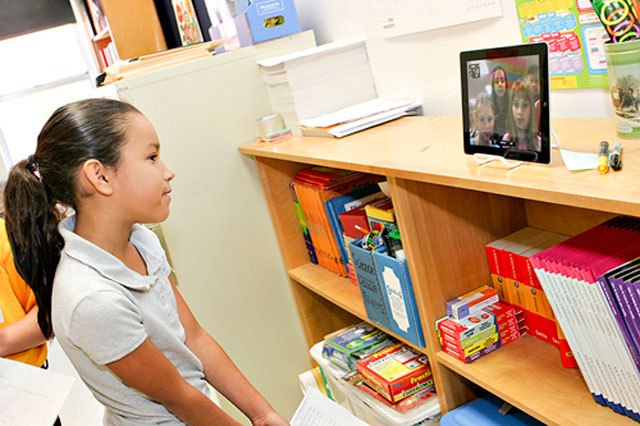At a time when many people are touting the iPad as an essential learning tool and a school district in Maine is contemplating providing iPads to its kindergarteners, a new survey reveals that the most popular use of tablet computers is probably one that most pro-iPad educators didn’t have in mind.
The survey by Google AdMob found that fully 84 percent of tablet owners use their device for playing games. The second most popular activity was searching for information (78 percent), followed by e-mail (74 percent), and reading the news (61 percent). Less popular activities include shopping (42 percent), reading e-books (46 percent), and consuming entertainment (51 percent).
Although the March survey didn’t reveal which tablets were owned by the 1,430 respondents, it’s safe to assume the majority were iPads, given Apple’s market dominance and the hugely successful iPad launches.
However, the survey did confirm how tablets are eating into the traditional PC market, with 77 percent of respondents reporting that their desktop/laptop usage decreased after getting a tablet. Twenty-eight percent reported that the tablet is now their primary computer.
Perhaps surprisingly, tablet computers have yet to catch on as mobile devices, with only 11 percent saying they use their device outside of the home. Completing the picture of the tablet as something to pick up when you have time to relax, most respondents (62 percent) said that they use their tablet more in the evenings. One in three owners spend more time with their tablet than they do watching TV.
Of course, the notion of the iPad as a gaming and entertainment platform is not lost on our children. It’s become hugely popular as a “pass-back” device – something to entertain the kids in the house or on a long car ride. To them, the iPad is a fun toy, part of an animated, touchscreen world dominated by Angry Birds and Little Ninja.
It’s possible that the iPad can become an essential learning tool, but for many kids – and their parents – it will be hard to tell when play ends and the learning begins. by Monica J. Vila [NBC]


